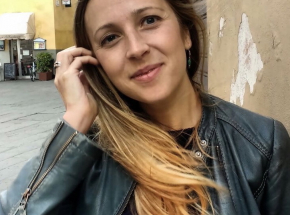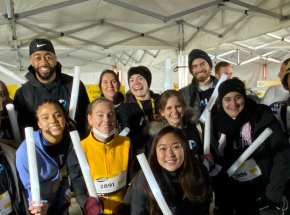- About AUP
- History of AUP
- Mission & Core Values
- Vision and Leadership
- AUP Recognition
- Alumni Success
- Campus Development
- Arts at AUP
- Policies & Guidelines
- Academics
- Undergraduate
- Graduate Programs
- MA in Diplomacy and International Law
- MA in Global Communications
- MSc in Human Rights and Data Science
- MA in International Affairs
- MA in International Affairs, Conflict Resolution, and Civil Society Development
- MSc in International Management
- MSc in Strategic Brand Management
- Find Your Thesis Advisor
- Previous Programs
- Cultural Program
- Faculty
- Summer School
- Research Centers
- The Center for Critical Democracy Studies
- Upcoming Events
- Research Projects
- Fellows’ Publications
- Publishing
- Curriculum
- Community
- Visiting Scholars
- CCDS Highlights
- Atelier de Théorie Politique – Paris
- Critical Theory 101: Future Directions and New Challenges
- Martti Koskenniemi on “The Law of International Society: A Road not Taken”
- Academic Freedom Symposium
- Tocqueville Colloque 2023
- Violent Turns Conference
- Degenerations of Democracy
- DEMOS21 Inaugural Event
- What Demos for the 21st Century?
- The Paris Centennial Conference
- Justice Stephen Breyer
- Civic Jazz - The Launch of the Center
- Past Events
- FR
- The Center for Writers and Translators
- The George and Irina Schaeffer Center for the Study of Genocide, Human Rights and Conflict Prevention
- The Joy and Edward Frieman Environmental Science Center
- The Center for Media, Communication & Global Change
- The Center for Critical Democracy Studies
- Departments
- Academic Resources
- Academic Affairs
- Academic Calendar
- Academic Resource Center
- Library
- Registrar's Office
- Teaching and Learning Center
- Employer Network
- Accessibility & Accommodation Services
- AI@AUP: A Campus-Level Initiative
- Quai D'Orsay Learning Commons
- Paris as Classroom
- ACE Center
- Admissions
- Student Life
- Campus
- Student Leadership & Involvement
- Paris
- Support Services
- Student Development Help Desk
- Student Accounting Services
- Student Immigration Services
- Student Grievance Procedure
- Diversity and Inclusion
- Health & Well-being
- Digital Student Handbook
- News
- Events
- AUP Giving
- Housing Offer for 2025-2026
- IT Services
- Alumni
- About AUP
- History of AUP
- Mission & Core Values
- Vision and Leadership
- AUP Recognition
- Alumni Success
- Campus Development
- Arts at AUP
- Policies & Guidelines
- Academics
- Undergraduate
- Graduate Programs
- MA in Diplomacy and International Law
- MA in Global Communications
- MSc in Human Rights and Data Science
- MA in International Affairs
- MA in International Affairs, Conflict Resolution, and Civil Society Development
- MSc in International Management
- MSc in Strategic Brand Management
- Find Your Thesis Advisor
- Previous Programs
- Cultural Program
- Faculty
- Summer School
- Research Centers
- The Center for Critical Democracy Studies
- Upcoming Events
- Research Projects
- Fellows’ Publications
- Publishing
- Curriculum
- Community
- Visiting Scholars
- CCDS Highlights
- Atelier de Théorie Politique – Paris
- Critical Theory 101: Future Directions and New Challenges
- Martti Koskenniemi on “The Law of International Society: A Road not Taken”
- Academic Freedom Symposium
- Tocqueville Colloque 2023
- Violent Turns Conference
- Degenerations of Democracy
- DEMOS21 Inaugural Event
- What Demos for the 21st Century?
- The Paris Centennial Conference
- Justice Stephen Breyer
- Civic Jazz - The Launch of the Center
- Past Events
- FR
- The Center for Writers and Translators
- The George and Irina Schaeffer Center for the Study of Genocide, Human Rights and Conflict Prevention
- The Joy and Edward Frieman Environmental Science Center
- The Center for Media, Communication & Global Change
- The Center for Critical Democracy Studies
- Departments
- Academic Resources
- Academic Affairs
- Academic Calendar
- Academic Resource Center
- Library
- Registrar's Office
- Teaching and Learning Center
- Employer Network
- Accessibility & Accommodation Services
- AI@AUP: A Campus-Level Initiative
- Quai D'Orsay Learning Commons
- Paris as Classroom
- ACE Center
- Admissions
- Student Life
- Campus
- Student Leadership & Involvement
- Paris
- Support Services
- Student Development Help Desk
- Student Accounting Services
- Student Immigration Services
- Student Grievance Procedure
- Diversity and Inclusion
- Health & Well-being
- Digital Student Handbook
- News
- Events
- AUP Giving
- Housing Offer for 2025-2026
- IT Services
- Alumni
Faculty
Professor Roy
Comparative Literature
What made you come to France to study postcolonial epics and transnational narratives?
I’d already studied English and French Literature at the University of Mumbai, so Comparative Literature sounded like a wonderful way to bring the two together, and since I spoke French, it made sense to do it in Paris. My favorite theorist was Gérard Genette: I loved his idea that a text is like a piece of parchment that has been reused so that earlier layers of writing remain slightly visible under newer texts. As he puts it, « on peut y lire, par transparence, l’ancien sous le nouveau » (you can read the old layers under the new, just as you would with a palimpsest held against the light). In a way, this transparent tradition means that you can see remnants of the Ramayana or the Iliad in today’s postcolonial epics.
What brought you to AUP?
I guess that as an Indian in Paris, I was very interested in international community in Paris. And as Herman Melville says, we expatriate ourselves to nationalize with the universe, so AUP seemed like a good place to nationalize with the world—if not the universe! It was also an opportunity to have the best of two worlds: the pluridisciplinarity of the American system in the pluralistic city of Paris.
What languages do you speak?
English, Hindi (India’s national language), and Marathi, since I was born and brought up in Mumbai. I also grew up surrounded by my parents’ regional languages, Bengali and Punjabi. Later, in school, I learned French and dabbled in Italian and Spanish.
How did you become fluent in French?
I was lucky enough to have very inspiring French teachers in India. I’ve always been a bit of a parrot, I like imitating people, and a useless quirk like that can actually prove useful when you’re learning a language.
What generated your initial interest in epics?
You can’t not be interested in epics in India because they’re always with you. They’re in comic books, on television, in music, they’re part of the stories that we tell in our festivals: they’re omnipresent and they remain alive because they’re popular.
What would you consider to be the central epics within India’s literary tradition?
We have our four holy books, the Vedas, the Mahabarata and the Ramayana, which are narrative versions of the philosophy and religious content of the scriptures. They’re stories within stories within stories, an endless, china box structure, from which other stories migrate to different contexts and languages. It would be as if the Aeneid was written in Latin and then you had versions of it in French and German, which is actually what did happen with the epic tradition in Western literature, but it remained very courtly, whereas in India, the elite and the popular interacted with each other.
Why did you choose to focus your doctoral studies on Herman Melville, Derek Walcott, and Amitabh Ghosh?
All three are exploring how identity and history can happen on the ocean. Melville takes a rooted, nation-centered form—the epic—to talk about decentered and nomadic subjects, which speaks to contemporary readers, since contemporary history is a product of migration and human mobility. Meanwhile, Walcott is interested in the legacy of slavery and the Middle Passage, while Ghosh is talking about Indian indentured labor.
Do you think that the idea of the epic still applies in contemporary postcolonial literature?
Yes, because the epic still speaks to us. Writers like Edouard Glissant and Kamau Brathwaite are now exploring how individual and collective identities are shaped by oceanic experience, while also using characteristics that recur across classical/ancient epics. I like seeing those characteristics emerge so that in each epic, you’re looking at previous layers of previous texts.
What are some of your upcoming classes?
I’ll be teaching a class where we’ll look at Paris from a postcolonial perspective. We sometimes have a de-politicized view of Paris, where it becomes an ahistorical entity of art and culture and romantic love. That absence speaks volumes, so we’ll be coming to terms with the broader historical narrative of France’s colonial past that, in a way, the City of Light dazzles us out of seeing.
Related
-

Professor Dennis
Faculty
Read MoreProfessor Dennis
Faculty
It’s important to have a sense of how one’s readers will experience things.
-

Gabrielle Flam ’10
Alumna
Read MoreGabrielle Flam ’10
Alumna
AUP cemented my desire to study literature and writing and helped spark my intellectual curiosity and creativity.
-

Course des Lumières
Paris as Classroom
Read MoreCourse des Lumières
Paris as Classroom
Participants are provided with a light-up baton to carry throughout, symbolizing the movement’s aim of “lighting up the night against cancer.”
